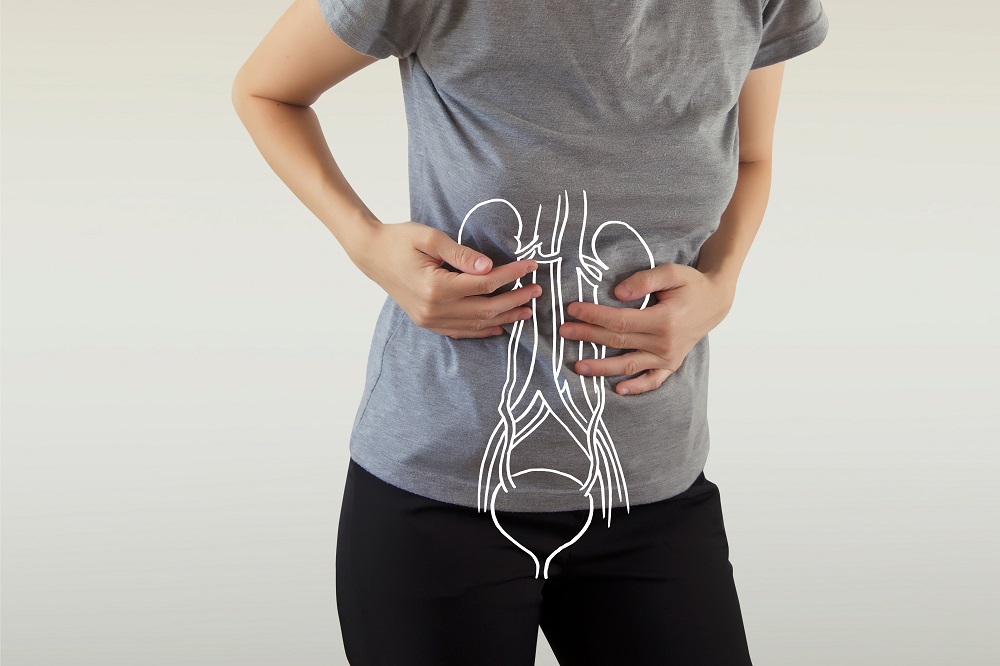What is Diabetes? Different Types of Diabetes
Chances are, you’ve heard people talk about “diabetes” as if everyone living with diabetes shares the same symptoms and complications. However, if you’re living with diabetes or caring for someone with diabetes, you might need more information to work with. Are you wondering what the different types of diabetes are? Let the pros at Bowtie help you learn more about all four types of diabetes.
Type 1 Diabetes
Type 1 diabetes (previously called insulin-dependent or juvenile diabetes) is usually diagnosed in children, teens, and young adults, but it can develop at any age. Type 1 diabetes is less common than type 2—only approximately 5-10% of people with diabetes have type 1.
Glucose is the fuel that feeds your body’s cells. Insulin is the key that allows glucose to enter the cells. Those with type 1 diabetes produce little or no insulin. But with the help of insulin therapy and other treatments, patients can learn to manage their condition.
Type 2 Diabetes
Type 2 diabetes is the most common form of diabetes. People with type 2 diabetes have insulin resistance, meaning that the body still produces insulin, but it’s unable to use it effectively, causing sugar to build up in the bloodstream. While some people can control their blood sugar levels with healthy eating and exercise, others may need medication or insulin to help manage it.
Gestational Diabetes
Gestational diabetes is a type of diabetes that can develop during pregnancy in women who don’t already have diabetes. Like other types of diabetes, gestational diabetes affects how cells use glucose. If diabetes is not well controlled during pregnancy, high blood sugar levels can affect the baby and mother during pregnancy, at the time of birth, and after birth. Expectant mothers can control gestational diabetes by eating healthily, exercising and, if necessary, taking medication. For most women, their blood sugar levels go back to normal quickly after giving birth. But if you’ve had gestational diabetes, you face a higher risk of getting type 2 diabetes.
Prediabetes
Prediabetes is a health condition where blood sugar levels are higher than normal, but not high enough yet to be diagnosed as diabetes. Prediabetes puts you at increased risk of developing type 2 diabetes, heart disease, and stroke. The good news is, progression from prediabetes to type 2 diabetes isn’t inevitable. Adopting a balanced diet, being physically active and staying at a healthy weight can help bring your blood sugar level back to normal.
Symptoms of Diabetes
Diabetes symptoms may occur when blood sugar levels in the body become abnormally high. Symptoms vary depending on how much your blood sugar is elevated. Some people, especially those with prediabetes or type 2 diabetes, may sometimes not experience symptoms. In type 1 diabetes, symptoms tend to come on quickly and be more severe. Recognizing the early symptoms can help prevent diabetes complications.
Some of the signs and symptoms of type 1 diabetes and type 2 diabetes are:
- Increased thirst
- Frequent urination
- Extreme hunger
- Unexplained weight loss
- Presence of ketones in the urine (ketones are a byproduct of the breakdown of muscle and fat that happens when there’s not enough available insulin)
- Fatigue
- Irritability
- Blurred vision
- Slow-healing sores
- Frequent infections, such as gums or skin infections and vaginal infections
Gestational diabetes typically doesn’t have any symptoms. Your medical history and whether you have any risk factors may suggest to your doctor that you could have gestational diabetes, but you’ll need to be tested to know for sure.
Causes & Risk Factors
Type 1 and type 2 diabetes may have similar names, but they’re different diseases with unique causes and risk factors.
Risk factors for type 1 diabetes include:
- Family history: People with a parent or sibling with type 1 diabetes have a higher risk of developing it themselves.
- Age: Type 1 diabetes can appear at any age, but it’s most common among children and adolescents.
- Genetics: The presence of certain genes points to an increased risk of developing type 1 diabetes.
You’re at risk of developing type 2 diabetes if you:
- have prediabetes, or slightly elevated blood sugar levels
- are carrying excess weight or have obesity
- have a lot of belly fat
- are physically inactive
- are over age 45
- have had gestational diabetes
- have given birth to a baby weighing more than 9 pounds
- have an immediate family member with type 2 diabetes
- have polycystic ovary syndrome (PCOS)
Complications of Diabetes
Having too much glucose in your blood can cause complications over time, including:
- Eye disease, due to changes in fluid levels, swelling in the tissues, and damage to the blood vessels in the eyes
- Foot problems, caused by damage to the nerves and reduced blood flow to your feet
- Gum disease and other dental problems because a high amount of blood sugar in your saliva helps harmful bacteria grow in your mouth.
- Heart disease and stroke, caused by damage to your blood vessels and the nerves that control your heart and blood vessels
- Kidney disease, due to damage to the blood vessels in your kidneys. Many people with diabetes develop high blood pressure, which can also damage their kidneys.
- Nerve problems, caused by damage to the nerves and the small blood vessels that nourish your nerves with oxygen and nutrients
- Skin conditions, some of which are caused by changes in the small blood vessels and reduced circulation. People with diabetes are also more likely to have infections, including skin infections.
Diagnosis
The primary test used to diagnose both type 1 and type 2 diabetes is known as the A1C (or glycated hemoglobin) test. This blood test determines your average blood sugar level for the past 2 to 3 months. Your doctor may draw your blood or give you a small finger prick. The higher your blood sugar levels have been over the past few months, the higher your A1C level will be. An A1C level of 6.5 percent or higher indicates diabetes.
Treatment
- Type 1: People with type 1 diabetes don’t produce insulin, so it must be regularly injected into the body.
- Type 2: Type 2 diabetes can be managed and even reversed with diet and exercise. If lifestyle changes don’t suffice, your doctor may prescribe medications that help your body use insulin more effectively. Monitoring your blood sugar is also an essential part of type 2 diabetes management. Your doctor may recommend testing your blood sugar regularly. If your blood sugar levels are high, your doctor may recommend insulin injections.
Self-monitoring Tips
While Type 1 diabetes cannot be prevented, it is possible to lower your risk of developing type 2 diabetes through these lifestyle changes:*
- Maintain a moderate weight
- If you’ve been overweight, develop a weight-loss plan with a health care professional
- Increase your activity levels
- Follow a balanced diet and reduce your intake of high-sugar foods or overly processed foods
The key to treating it is to act quickly! You can do a lot to manage your gestational diabetes, including:
- Checking your blood sugar to make sure your levels stay in a healthy range.
- Eating healthy food in the right amounts at the right times, as advised by your doctor or dietitian.
- Being active. Double check with your doctor about what kinds of physical activity you can do and if there are any kinds you should avoid.
- Monitoring your baby. Your doctor will check your baby’s growth and development.
If healthy eating and being active aren’t enough to manage your blood sugar, your doctor may prescribe insulin, metformin, or other medication.
Sugar doesn’t directly cause type 2 diabetes. But you are more at risk of developing it if you are overweight. You gain weight when you take in more calories than your body needs, and high-sugar foods and beverages contain a lot of calories.
Avoiding foods that increase your blood sugar levels and drive insulin resistance can help keep you healthy and reduce your risk of future diabetes complications. People with diabetes or prediabetes should stay away from foods that contain unhealthy fats, liquid sugars, processed grains, and refined carbs, including:
- Sugary beverages
- Trans fats
- White bread, rice, and pasta
- Flavored yogurt
- Sweetened breakfast cereals
- Honey, agave nectar, and maple syrup
- Dried fruit
- Packaged snack foods
- Fruit juice
- French fries
- 1CDC - What Is Type 1 Diabetes?
- 2CDC - Gestational Diabetes
- 3Medline Plus - Infant of diabetic mother
- 4CDC - Prediabetes
- 5Mayo Clinic - Prediabetes
- 6Mayo Clinic - Diabetes
- 7Medline Plus - Diabetes Complications
- 8Healthline - Type 1 and Type 2 Diabetes
- 9Diabetes UK
- 10Healthline -Foods and Drinks to Avoid with Diabetes






